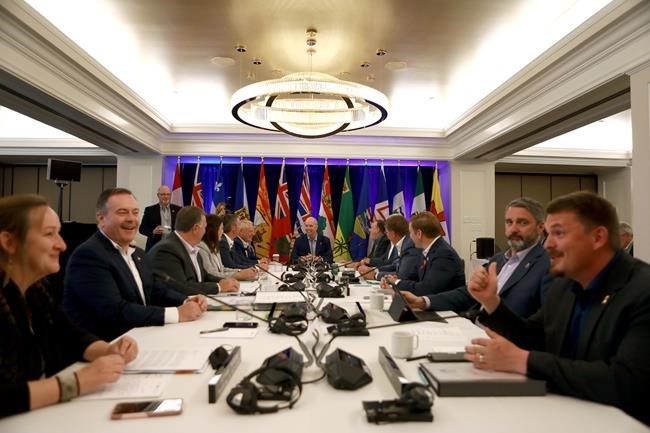OTTAWA — As premiers gathered in British Columbia try again to make their case for a permanent increase in federal health transfers, they're also waiting on $2 billion they were promised back in March to help clear surgical and diagnostic backlogs.
Health Minister Jean-Yves Duclos announced the one-time top-up to "expedite" surgeries on March 25, and he and Finance Minister Chrystia Freeland introduced a bill in the House of Commons the same day to enable the funding.
"We appreciate that this is going to be a challenge," Duclos said during the announcement. "However, we know that this level of support at this time will make a difference."
But Bill C-17 wasn't passed in the spring sitting. It's sitting at second-reading stage, having never been debated by MPs. The promised funding was instead packaged into the federal budget roughly two weeks later, and passed into law on June 23.
New Brunswick's budget was released three days before Duclos promised another $41 million to the province, and Premier Blaine Higgs said his government is sticking with its plan.
"We thought, that's great, there are additional things we hope to do with that," he said. But he added, "If you don't get the cheque, you can't spend it."
The Finance Department says payments will start imminently, and Duclos said the government is now signing official letters, "which are necessary to send the funding."
The federal government noted the money could be used to "strengthen the health workforce," and that's why Higgs said even when the letters are signed, the spending won't be immediate.
"We don't have the resources to all of a sudden do a whole lot more just because there's more money," he said.
"And then I'll get blamed, probably, for not spending it."
The hour-long announcement March 25 was made at the University of Ottawa with three federal ministers and a hospital bed as the backdrop.
Duclos spoke from prepared remarks about the history of publicly funded health care in Canada, laid out concerns about access to primary care and long-term care, and about the damage the pandemic has caused throughout the health-care system.
"Too many of our fellow citizens have suffered and are still suffering," he said. "In 2022, this should simply not be happening in Canada."
He also talked about the future of the health-care system, which he said will require a different form of collaboration with the provinces.
Higgs said it seems like Bill C-17 was a public relations exercise. "We're coming out of a pandemic, so what a good time for an announcement of $2 billion."
The provinces need sustainable, long-term funding, "so don't put it out in dribs and drabs that we can't really utilize," he said.
The federal departments of health and finance did not respond to questions about why the announcement was made and why Bill C-17 was introduced just before the budget, only to be ignored on the order paper for the rest of the sitting.
"We have stepped up together in terms of policy, but also in terms of funding support to the provinces and territories," Duclos said in an interview Tuesday with The Canadian Press.
B.C. Premier John Horgan said the money won't be enough to meet the need, adding "although the Band-Aid is welcome, we need stitches, we need prosthetics."
The per-capita funding ranges from about $2 million for each of the territories to more than $775 million for Ontario.
This report by The Canadian Press was first published June 12, 2022.
— With files from Laura Osman in Ottawa and Brenna Owen in Vancouver
Sarah Ritchie, The Canadian Press



